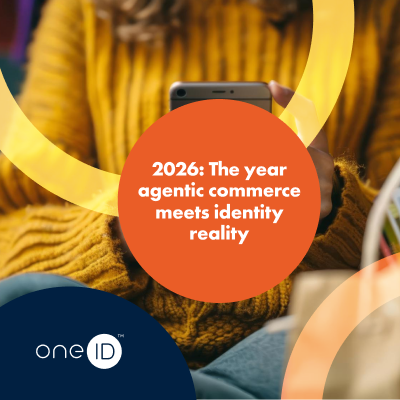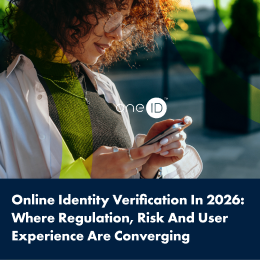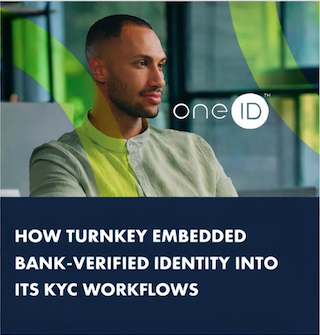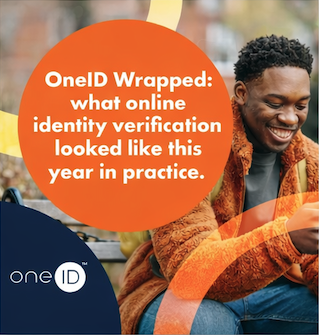As the new Labour government prepares for its first full session starting on 2nd Sept, one topic that should be high on the agenda is how to enable the UK's digital infrastructure to better support the goals of economic growth, reduced fraud and increased efficiency of public services.
OneID® sets out its recommendations for strengthening the UK’s digital public infrastructure, building out from the good start made by the Department for Science Innovation and Technology (DSIT).
What is Digital Public Infrastructure?
“Digital Public Infrastructure is an approach to solving socio-economic problems at scale, by combining minimalist technology interventions, public-private governance, and vibrant market innovation.”
Common examples include the Internet, mobile networks, GPS, verifiable identity systems, interoperable payments networks, consented data sharing, open loop discovery and fulfilment networks, digital signatures, and beyond.”1
“Just as we built roads, highways, and airports in the 20th century, we must now build a digital infrastructure that is open, accessible, and empowers everyone.” Bill Gates2
In many other countries, such as Estonia and India, Digital Public Infrastructure (DPI) has been adopted to give a solid baseline for growth and security. The ‘public’ infrastructure can be privately funded and publicly used, which saves taxpayers the cost of building it. Although DPI helps nations deliver to the UN’s sustainable goals3, it applies equally to any developed nation as an enabler of growth and inclusion. Beyond network infrastructure (mobile, broadband), DPI typically consists of three key layers; payments, identity and data sharing.
Payments
For payments, the UK already has world-leading services, but to maintain that leadership position we need to have a clear vision and strategy, on which HM Treasury is leading, with a National Payment Vision (expected this summer). It is hoped that this strategy will guide the industry to deliver future payment 'rails' such as account-to-account payments and a digital pound.
Digital Identity
For identity, the Digital Information and Smart Data (DISD) bill should drive the next steps for the ID framework that already exists in beta, the Digital Identity and Attributes Trust Framework (DIATF). There are already 50 companies who have invested in the UK to become certified to the framework's requirements for security, data protection and customer consent for ID services.
This framework is designed to build public trust in identity providers as the UK government underpins that public trust through an independent audit of privacy, cyber-security etc.
The Tony Blair Institute has called for a centralised ID system, at a cost of £1bn plus £100m running costs pa4. With the existing market of certified ID services under the DIATF, a centralised UK government ID system is just not necessary - the services already exist that can perform the same functions, are more secure and cost-effective for the taxpayer, and are available today.
A vibrant digital ID market is also key to reducing fraud, which is now a national epidemic, with half of all crime being either the stealing of ID data or the misuse of it to commit fraud. There should be a nominated minister for anti-fraud, probably within the Home Office, who can oversee a cross-sector holistic strategy (including big tech) to reduce fraud, including better use of ID services online to enable ‘verified person’ interactions. The Online Safety Act is an element of this, but needs to be accelerated, broader in ambition and connected to the DIATF framework.
There is now a broad consensus that a ubiquitous digital identity scheme is the core foundation to the full development of a digital economy. For example, a McKinsey study5 found that digital ID can enable a 3% GDP uplift (a £61bn gain for the UK, every year) and also concluded that:
Data
Finally, for data sharing, the DISD bill also enables new schemes for ‘smart data’ sharing (“the secure sharing of customer data with Authorised Third Parties, upon a customer’s request.”6), which aims to unlock new value for customers. These schemes would follow in the footsteps of Open Banking, which has given citizens the ability to share their data to create benefits and value and enabled a more digital and secure economy. The Department of business and Trade (DBT) has been leading on 'Smart Data' projects across various sectors - the new bill should align these initiatives under a common approach to give interoperability, with a secure digital ID at the heart of data sharing. In addition, giving citizens the tools to share their government-held data with the private sector can also help with financial and digital inclusion.
DPI can be provided by the private sector (as OneID® has done with a UK-wide bank-based ID network) but should operate under the governance rules set by the government to maximise the ‘public value’ that can be created from use of the platforms.7
Enabling this key digital infrastructure will provide the foundations for the growth and security that the UK badly needs.
Recommendations
We have the following recommendations to enable a ‘digital Britain’:
Digital Identity
Payments
Sources

Agentic commerce is already operating inside live retail, payments, and platform environments. For Partn...

Online identity verification entered a new phase in 2025. Across adult platforms, gambling, financial se...

Last month, we joined Turnkey for an industry event to talk about a challenge many regulated platforms a...

2025 has been a year of continued growth and real-world proof for OneID®. As expectations for identity a...